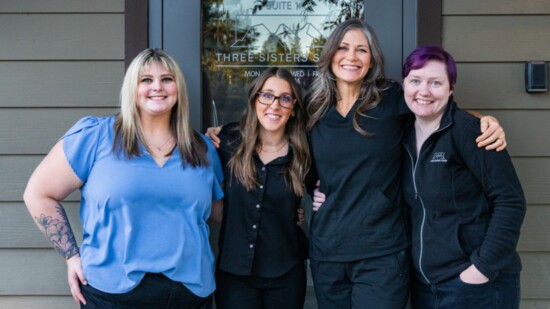An estimated thirty million adults in the United States have a form of sleep apnea, a common sleep disorder that causes frequent pauses in normal breathing during sleep. Symptoms include snoring, daytime fatigue and gasping for air while sleeping. Surprisingly, only around six million people have been clinically diagnosed and are receiving some form of treatment for their symptoms.
There are two main types of sleep apnea: Obstructive Sleep Apnea (OSA) and Central Sleep Apnea (CSA). Someone with OSA has a narrowing of their airway, which leads to breathing disruptions while sleeping. With CSA, the breathing disruptions are caused by a lack of communication between the brain and the muscles. These interruptions reduce the quality of sleep and when left untreated can lead to cardiovascular problems, high blood pressure and other health conditions.
Since the 1980’s, sleep apnea treatments have come a long way in both holistic therapies and devices. The standard sleep study, polysomnography, monitors patients while they sleep to track breathing patterns, brain activity, heart rate and other important body functions. Once a patient is diagnosed with sleep apnea, a treatment plan can be put in place. Whether it’s a CPAP machine, an oral device or surgery, sleep apnea treatments, along with lifestyle changes, are important for long term quality of life.
At Three Sisters Sleep in Bend, owner and operator Dr. Kylie Wasserman and her team focus on offering their patients an alternative therapy to treat snoring and OSA in the form of oral device therapy. This therapy works by using custom-fitted appliances that fit inside the patient’s mouth. The most common of these devices is a mandibular repositioning device (MRD) that moves the lower jaw into a forward position, lifting the roof of the mouth and increasing the space behind the tongue, thus increasing airflow. There are many benefits to these oral devices, including small size, comfort and ease of use, which make them an overall more effective treatment option for many patients.
Dr. Wasserman began her journey with sleep apnea therapy during her dental residency. She grew up in northwest Ohio and attended Ohio State University for undergraduate and dental school, moving to Oregon to complete her dental residency at OHSU. After her residency, Dr. Wasserman moved to Central Oregon and began her dental career.
“After practicing general dentistry for several years, I began noticing more patients with symptoms of sleep apnea—things like snoring, fatigue, and even concerns from their family members,” notes Dr. Wasserman. “I wanted to do something more for these patients beyond just the typical dental care. After doing more research and taking continuing education courses in dental sleep medicine, I decided to open a practice with a focus on treating sleep apnea. It felt like a natural fit for me to offer a non-invasive treatment option that could really change people’s lives.” In the summer of 2022, Dr. Wasserman founded Three Sisters Sleep.
Recognizing that everyone needs and deserves a good night’s sleep for overall health, Three Sisters Sleep works closely with a patient’s medical team to ensure a holistic approach to patient care. “Every patient is unique, so we create a treatment plan that fits their specific needs. Our goal is to help patients not only sleep better but feel better overall,” Dr. Wasserman states.
For patients new to the clinic, they begin with a comprehensive evaluation, which includes gathering medical history, symptoms and lifestyle factors. This information is key to mapping out an individualized treatment plan. Sleep physicians are often involved as well to diagnose the severity of the condition. If a patient is a candidate for an oral device, Three Sisters Sleep takes digital scans for a custom-made device. Once the device is ready, a fitting is done to make any necessary adjustments, follow-up visits are scheduled, and the patient works closely with their sleep physicians to ensure the device is working properly and symptoms are improving.
In Central Oregon, there are several factors that can affect sleep. At higher elevations, there’s less oxygen in the air, which may lead to difficulty breathing during sleep and either worsen or bring on symptoms that someone has never experienced before. “We also have a community that is very active, so injuries are common and can affect good sleep,” says Dr. Wasserman. “Recent injuries and even chronic pain can make it difficult for people to sleep soundly, and good sleep is critical for healing and recovery. Undiagnosed and untreated sleep apnea can worsen fatigue and slow the recovery process.”
“Managing sleep apnea is crucial to overall health, and oral devices are a great option for many people with mild to moderate sleep apnea,” Dr. Wasserman notes. At Three Sisters Sleep, their mission is to help their patients get a peaceful, uninterrupted night’s sleep and discover the benefits of this non-invasive, yet effective, alternative treatment option.
ThreeSistersSleep.com
